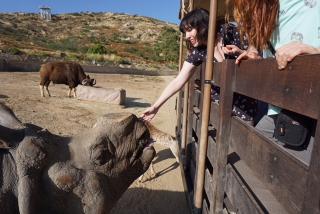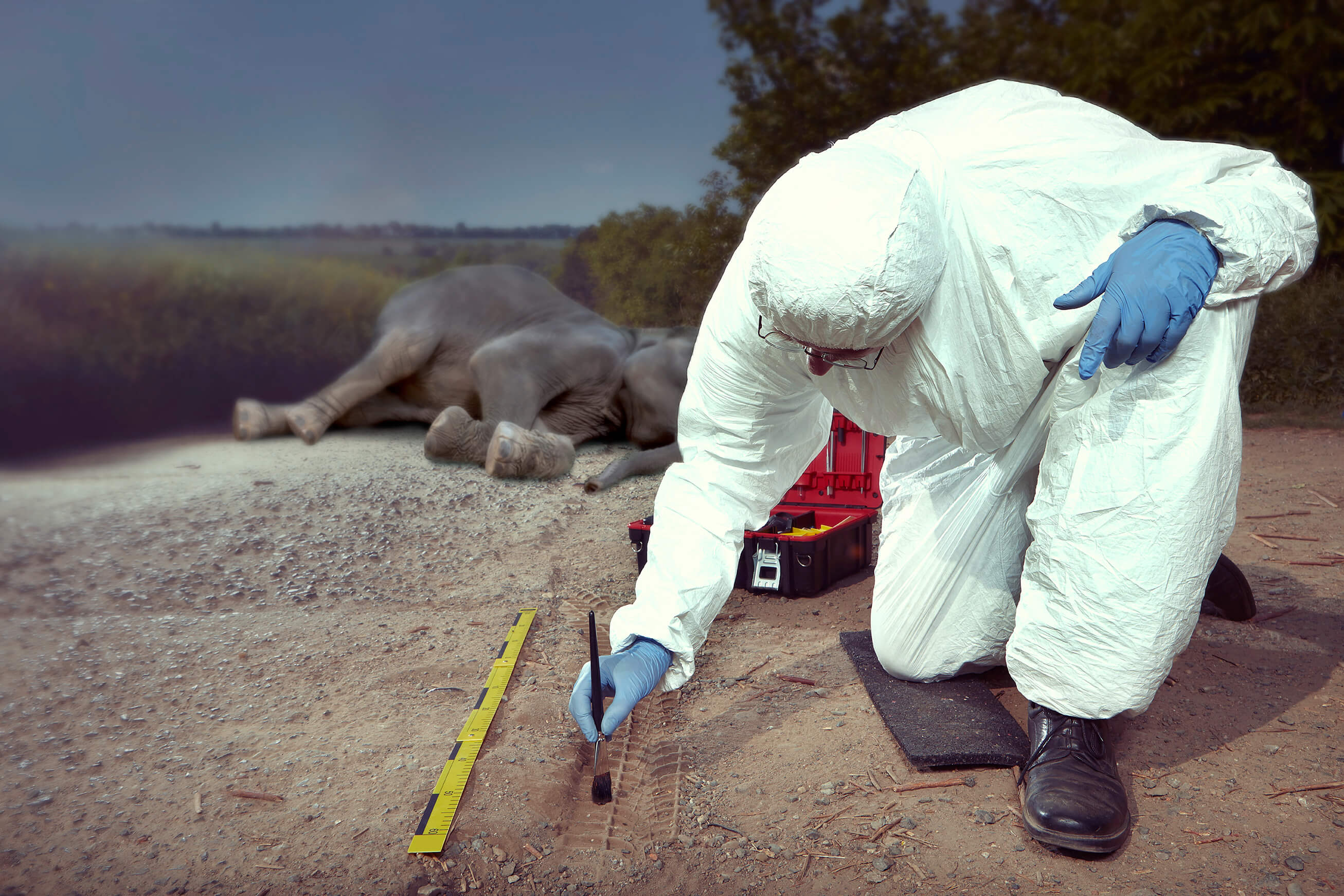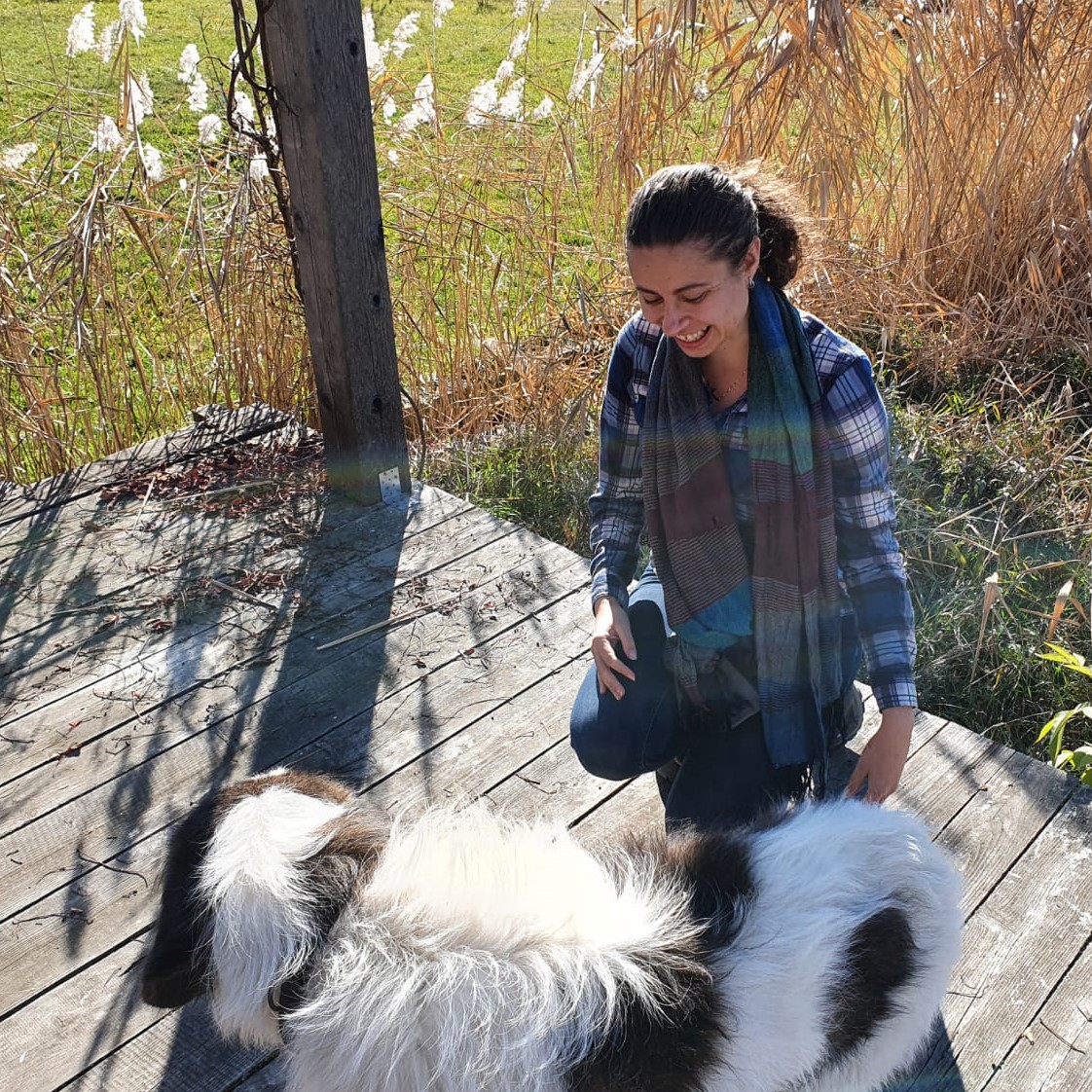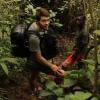Wildlife crime is one of the greatest challenges facing conservation, and one of the conservation tech world's biggest areas of innovation. With new ideas and solutions constantly being put forth to track and protect species targeted by poachers, manage protected areas and support rangers, and combat the growing online market for illegal wildlife products, the engineers and conservationists working to solve wildlife crime's many challenges rely on tools like machine learning, biologging, camera traps, acoustic monitoring, drones, mobile apps, and more.
This wide variety of overlapping technology makes our Wildlife Crime group a potential melting pot for many of our other communities, and makes it an especially exciting place to find collaborators working in different tech spheres to meet a common goal. Whether you're a camera trap expert looking for information on thermal vision to spot potential poachers, a machine learning expert with the skills to analyze acoustic data for gunshots, or a protected area manager seeking the latest integrated mobile tools, this group can connect you with the right members of our community!
Below, you'll find WILDLABS resources and conversations to help you understand how different technologies are being put to work in the fight against wildlife crime, and what conservation tech practitioners need for these tools to be effective.
Three Tutorials and Videos for Beginners:
- How do I use AI to fight wildlife crime? | Lily Xu, Tech Tutors
- WWF Wildlife Crime Technology Project | Eric Becker, Virtual Meetups
- SmartParks | Laurens de Groot, Virtual Meetups
Three Forum Threads for Beginners:
- Snare detection technologies | Rachel Kramer
- Tools for conservation management | Chris Muashekele
- Looking for Intelligence Database Software | Dexter Oelrichs
Three Articles for Beginners:
- Using AIS data to investigate the world's fishing ports, Max Schofield
- How do Wildlife Crime Experts view Remote Sensing Technologies used to Combat Illegal Wildlife Crime?, Isla Duporge
- Metal Detecting Sensors for Anti-Poaching, Sam Seccombe
Join this group now to get to know our community and start discussing solutions and ideas together!
Header photo: © Frank af Petersens/Save the Elephants
A Wildlife Biologist interested in Environment Assessment and Restoration, In-situ and Ex-situ strategies, Technologies used in Conservation and Illegal Wildlife Trade.


- 0 Resources
- 16 Discussions
- 15 Groups
Data Scientist
- 0 Resources
- 7 Discussions
- 13 Groups
I am a biology undergraduate student who is interested in the field of wildlife conservation and has skills in field observation and identification
- 0 Resources
- 0 Discussions
- 12 Groups
worked in wildlife conservation coms, now in live music production incl audio, curious about eco/bioacoustics.
- 0 Resources
- 11 Discussions
- 3 Groups
- @Marti09
- | She/her
I'm a PhD student and my research focuses on analyzing patterns in mammals poaching occurrences.

- 0 Resources
- 6 Discussions
- 3 Groups
As a fresh electrical engineer, I am passionate about leveraging technology for biodiversity monitoring, logging, and poaching detection in tropical regions.
- 0 Resources
- 0 Discussions
- 9 Groups
My research focuses on using Next-Generation Sequencing (NGS) to study endangered species, including carnivores, chiropterans (bats), and lizards, as well as their microbiomes.
- 1 Resources
- 3 Discussions
- 20 Groups
- @Sarah_Stoner
- | She/her
Intelligence Lead @Go Insight. Intelligence professional, advocating for the use of intelligence and analysis to combat international wildlife trafficking.
- 0 Resources
- 3 Discussions
- 3 Groups
- @eleanorhorvath
- | she/her
Water Daughter
- 0 Resources
- 0 Discussions
- 10 Groups
- @kristian.cuervo
- | He/Him
Applied Mathematics student in Denmark, interested in applications of mathematics to ecology and nature conservation. Currently interested in developing sensors for perimeter detection in wildlife conservations in Africa.
- 0 Resources
- 4 Discussions
- 9 Groups
- @valengsb
- | she / her
GIS specialist for Audubon Americas | Biologist with an emphasis on Conservation and Sustainable Development | Innovative approaches in the study and monitoring of biodiversity for possible, biodiverse, and just futures.
- 0 Resources
- 0 Discussions
- 18 Groups
Michigan State University
Conservation Criminologist
- 0 Resources
- 2 Discussions
- 7 Groups
Singapore's National Parks Board (NParks) has now opened the country's first Centre for Wildlife Forensics (CWF), and launched a new K9 unit to help uncover illegal wildlife and wildlife products at Singapore’s borders...
20 September 2021
Our friends at the Conservation Leadership Programme are proud to announce their 2021 CLP Team Award recipients! We'll be featuring interviews with some CLP winners about their projects, the technology they're using,...
17 May 2021
Check out WILDLABS' feature about the importance of building a community in the conservation technology world, shared on the IUCN World Conservation Congress blog to celebrate their upcoming event. Read an excerpt by...
17 May 2021
Today we're talking to Paul Bunker, owner of Chiron K9, a canine consultancy company specializing in detection, author of the workbook Imprint Your Detection Dog in 15 Days, a resource aimed at providing tools to get...
7 May 2021
Last year, Tim van Deursen and Thijs Suijten shared their new "Hack the Poacher" system with us, presenting a unique way to detect poachers in real-time within protected national parks. Read on to learn about their...
29 January 2021
This month, WILDLABS member Drew Cronin shared the new paper "Empowering rangers through technology and innovation." This collaborative effort included several members of the WILDLABS community and leadership, and...
27 January 2021
Do you have innovative #tech4wildlife ideas that could save one of the most endangered species on earth from extinction? Apply now to join Vaquita Hack, a hackathon for students and early career conservationists! This...
10 November 2020
Today, WWF conservation engineering intern Ashley Rosen shares insight into the process of redesigning a camera mount for FLIR thermal cameras used by rangers in the fight against poaching. Ashley's design will become a...
24 August 2020
Applications are now open for the the WWF-US Conservation Leadership Award, a prize honoring exceptional young people working toward conservation solutions in the United States. If you are an early career...
13 August 2020
Funding
Protecting elephants from conservation's most pressing issues like poaching and human-wildlife conflict requires big, bold, and innovative solutions. Hackster.io, Smart Parks, Edge Impulse, Microsoft, and several other...
11 August 2020
Since 2016, ZSL’s Instant Detect team have been working on improving metal detecting sensors for anti-poaching. The team believe that using metal detecting sensors will provide a highly targeted detection of potential...
10 August 2020
Article
SMART is excited to showcase the features of their new data collection solution, SMART Mobile! Built around the specific needs of the SMART user community, this streamlined mobile tool allows staff in protected areas to...
23 June 2020
June 2025
event
July 2025
September 2024
event
42 Products
1 R&D Projects
41 Organisations
Recently updated products
Recently updated R&D Projects
Recently updated organisations
| Description | Activity | Replies | Groups | Updated |
|---|---|---|---|---|
| Watch streaming footage here of John Amos, President of Sky Truth, speaking on Cheap Space, DIY Imaging and Big... |
|
Wildlife Crime | 9 years 6 months ago |
How do I get started with collecting mobile digital data to combat Illegal Wildlife Trade?
16 May 2023 11:59pm
[Recordings Now Available!) EarthRanger User Conference
27 April 2023 5:52am
Artificial Intelligence and Conservation with Lily Xu
26 April 2023 8:41pm
Anti-poaching tech vulnerable to cyber attacks, study finds | ITWeb
26 April 2023 2:48pm
Congo Basin activity?
30 March 2023 9:14pm
Rhino horns in medicine
2 April 2023 2:22pm
How do I select an ivory sampling method to generate intelligence data?
15 March 2023 11:56am
Google Lens as a citizen's tool to report IWT
24 February 2023 9:30am
Mobilising East African nature restoration professionals
21 February 2023 3:57pm
Operation Pangolin launches to save world's most trafficked wild mammal
16 February 2023 7:51pm
17 February 2023 1:50am
Hiring Full Stack Developer at Conservation X Labs
10 February 2023 5:35pm
New Paper - The sound of the illegal: Applying bioacoustics for long-term monitoring of illegal cattle in protected areas
12 January 2023 5:20pm
Frontiers Symposium: Digital tools for reversing environmental degradation
5 October 2022 10:23am
Senior Conservation Technology Expert Position (Consultancy) with the Global Wildlife Program
22 September 2022 5:35pm
Survey for Doctoral Research on Poaching in Protected Areas
29 August 2022 10:43pm
Ceres Wild Rhino application
22 August 2022 1:29am
29 September 2022 4:05am
CERES TAG
22 July 2022 3:36am
A Triphibian Surveillance Vehicle
9 July 2022 2:23pm
Hello there
1 July 2022 5:00pm
Program Coordinator - Learning and Leadership for Conservation (LLC)
23 June 2022 2:45pm
New wildlife forensics lab - Singapore
29 May 2022 12:34pm
Solar-powered anti-poaching motorbikes
15 February 2021 12:55pm
5 October 2021 5:05am
Electric motorcycles definitely have advantages in the bush, and I would like to see more of that! Apart from the advantages mentioned by that site, the low speed torque and clutchless nature of electric drives make it a natural for rough terrain.
The bikes you linked to show their purebred sports/competition pedigree. Workhorse motorcycles for the rough look very different, for instance the German and Russian sidecar bikes of WW2, and the scooters used in farms today in SE Asia (especially Vietnam) often tow trailers or have sidecars and they handle offroad conditions well enough. Interdiction in flagrante delecti is where speed and agility are paramount, but I don't know how often that occurs, or if it is desireable.
They sure do look like fun though.
11 October 2021 11:17am
That an additional tool but I imagine that it will be only efficient in open terrain and mostly in southern African rainforest protected area. Not sure that it will be a game changer but might bring new ideas, let see how it goes.
2 April 2022 12:14pm
Thanks for the sharing the information. In India as well solar-powered e-bike for forest guards was piloted (See https://www.thebetterindia.com/267799/nit-karnataka-electric-bike-forest-surveillance-kudremukh-battery-range-specs/). It seems like a good technology but it has to be tested widely on different forest terrains...
Issues in CITES wildlife enforcement information sharing
2 April 2022 10:42am
Survey for Doctoral Research on Poaching in Protected Areas
11 March 2022 8:05pm
26 March 2022 10:57am
I tried to fill it out but it's not letting me finish because all the questions are set to be required? Some of them are not relevant or the info is unknown to me, but not all the questions have this as an answer option. Just something to consider FYI
28 March 2022 7:14pm
Hello. I have reviewed the questions this am and all the questions on the survey that force a response should have a N/A or "I don't know" option. That said, there are still some bugs that I have found with the survey. Please email me at wlz101@psu.edu if you encounter any more issues and I will be happy to address them promptly. Thank you very much for taking the time to complete the survey.
Wendy
Anti-poaching CCTV and boat sensor
21 February 2022 2:02am
5 March 2022 6:06am
Hi,
I've been working on a buoy-mounted underwater acoustic recorder, kinda like what you're talking about. I'll send you a concept note.
-harold
Download Now: The Technical Difficulties Editorial Series
19 January 2022 12:00am
Tech Companies Block More than 11.6 Million Transactions for Endangered Wildlife Online
6 December 2021 12:00am
Technical Difficulties: The Death of Giants
3 November 2021 12:00am










































25 April 2023 5:08pm
greetings!
i sent you a PM regarding this, feel free to contact me however is most convenient for you -
regards,
chris